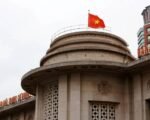Bahrain just got a bigger seat at the Arab banking table. Yaser Alsharifi, Chairman of the Bahrain Association of Banks, has been appointed to the Union of Arab Banks’ Board of Directors. His new role isn’t just about prestige—it’s a powerful nod to Bahrain’s growing influence in regional finance.
This appointment comes at a time when cross-border collaboration in the Arab world is gaining momentum. And Bahrain, small but punchy, has just made a very clear statement.
A Respected Appointment with Big Implications
The news broke with a congratulatory letter from Dr. Wissam H. Fattouh, Secretary-General of the Union of Arab Banks (UAB), who praised Alsharifi’s anticipated contributions. According to Dr. Fattouh, Alsharifi’s inclusion in the Board’s eighteenth term will help “advance Arab cooperation” and support economic development across the region.
Alsharifi didn’t just accept the nod quietly. He responded with a statement highlighting how the move showcases the strength and sophistication of Bahrain’s banking industry. And he’s right. The country has long punched above its weight in finance—especially in Islamic banking.
He also made it clear: this is about collaboration, policy influence, and bringing Bahrain’s best practices to the table.

Bahrain’s Banking Voice Just Got Louder
This appointment matters for several reasons. First, it places Bahrain’s financial perspective in a position of influence at a regional level. The UAB isn’t just a symbolic body—it’s a major player in coordinating banking efforts across the Arab world.
Alsharifi’s participation in the 120th ordinary Board meeting wasn’t ceremonial either. He was involved as key leadership roles were elected, including:
-
Chairman and Vice-Chairman of the Board
-
Executive Committee members and its Chair
-
Audit Committee members and Chair
-
Investment Committee formation and leadership
Plus, a memorandum was signed to create a new Islamic Banks Committee, and two trustees were nominated to join the Arab Academy for Administrative, Financial and Banking Sciences. In short, Bahrain was in the room where it all happened—and its voice was heard.
At the Table, In the Spotlight
Alsharifi isn’t just sitting on a board—he’s engaging in policy-level discussions that may steer the future of Arab finance. His commitment to sharing Bahrain’s experiences in innovation, regulation, and Islamic banking adds value to the Union’s agenda.
One thing worth noting? His focus on “forward-looking banking policies” that meet global economic shifts. That’s code for climate, digital transformation, fintech integration, and sustainable finance. These aren’t buzzwords—they’re priorities.
And it doesn’t hurt that Bahrain has been working hard to stay ahead of the curve on all of them.
Bringing Thought Leadership to Cairo
In addition to his board activities, Alsharifi took part in the Arab Banking Conference 2025 in Cairo. Held under the patronage of Central Bank of Egypt Governor Hassan Abdalla, the event was themed around “Public-Private Partnerships for Financing the Economy.”
Again, this wasn’t a ceremonial role for Alsharifi. His participation reflected Bahrain’s hands-on approach to regional collaboration and reform.
The conference brought together central bankers, regulators, and private sector leaders. Discussions focused on how governments and financial institutions can team up to close funding gaps, support infrastructure, and navigate global uncertainty.
Why This Matters for Bahrain’s Financial Future
This isn’t just about titles. For Bahrain, having Alsharifi in this role means stronger access to influence and opportunity. It’s also a confidence boost for the country’s financial institutions, showing that their practices are worthy of regional recognition.
Here’s a quick look at Bahrain’s current financial indicators:
| Indicator | Value (2024) |
|---|---|
| Banking Sector Assets | $234 Billion |
| Contribution to GDP | 17% |
| Islamic Banking Share | 35% of total assets |
| Financial Institutions Count | Over 370 licensed |
These figures show a sector that’s not just growing—but anchoring the country’s broader economy.
Not Just Symbolic, But Strategic
Let’s be honest—regional boards often get labeled as ceremonial. But in this case, Alsharifi’s appointment feels anything but that. The Union of Arab Banks is shifting gears to address serious economic headwinds. From inflation and interest rate hikes to digital disruption, the stakes are high.
And Bahrain, with Alsharifi at the table, is signaling its readiness to play a proactive role.
There’s also this layer: having someone with Bahrain’s regulatory insight and fintech experience contributes to smarter policies that can help balance innovation with financial stability. It’s a tricky line to walk. But Bahrain’s been doing it.
What Happens Next?
This board term is going to be eventful. There’s talk about strengthening financial inclusion, expanding green finance initiatives, and tightening anti-money laundering standards across Arab banks.
Alsharifi’s role could help shape:
-
Coordinated regulatory frameworks between Arab states
-
Knowledge exchange around Islamic finance innovation
-
Collective investment efforts for regional development
That’s more than just showing up. It’s shaping strategy.








